[ad_1]
Again in 2017, Vikrant Singh and Utkarsh Singh, engineering college students at Haryana’s BML Munjal College (BMU), had been creating an electrical racing automotive for a contest organised by Baja SAE (Society of Automotive Engineers) India — a non-profit engineering and scientific society devoted to the mobility neighborhood in India.
“It’s a contest the place school college students design and develop autos and compete on car racing circuits just like the Buddh Worldwide Circuit. It’s an excellent programme for budding engineers,” recollects Utkarsh, in a dialog with The Higher India.
A key part of creating an electrical racing automotive was putting in a lithium-ion (Li-ion) battery. Nonetheless, discovering such a battery in 2017 wasn’t simple as a result of, again then, no person in India was manufacturing it on a big scale. However they ultimately discovered an organization in Ludhiana, Punjab, which was importing batteries and distributing them all around the nation.
“As college students, we approached that firm for a battery they usually even agreed to provide us one for this challenge. However for six months they saved delaying the supply of this battery, and ultimately, we couldn’t take part within the competitors. Pissed off by this end result, Vikrant and I started discussing why these Li-ion batteries aren’t being made in India,” he recollects.
“We realised that in these batteries you’ve got Li-ion cells and these aren’t manufactured in India for the quite simple motive you could’t discover the uncooked supplies, i.e. lithium, cobalt and nickel, required to make them. Additionally, on the time, electrical automobile (EV) consumption wasn’t too heavy and nobody realised that this sector would take off quickly. On the time, no matter OEMs (authentic tools producers) in India wanted, they had been importing these supplies,” he provides.
As a part of their school semester challenge, they determined to construct Li-ion cells at a Rs 200 crore R&D laboratory arrange on campus. “We ordered lithium and cobalt from China. Resulting from varied causes, these supplies didn’t arrive on time for our challenge. To finish it, we purchased some previous Li-ion cells from the market, extracted no matter supplies we might in very impure varieties after which fabricated Li-ion cells (half cells) that delivered some power,” he recollects.
“To amass these supplies in India, we wanted to start out recycling previous Li-ion batteries. We predicted that quite a lot of Li-ion batteries are going to enter the nation, and if we recycle them, these supplies could be reused to make cells. See, you may recycle metals like lithium infinitely. That’s how the concept of BatX Energies was born. We spent the next semesters researching what’s required to recycle Li-ion batteries on a bigger scale,” he provides.
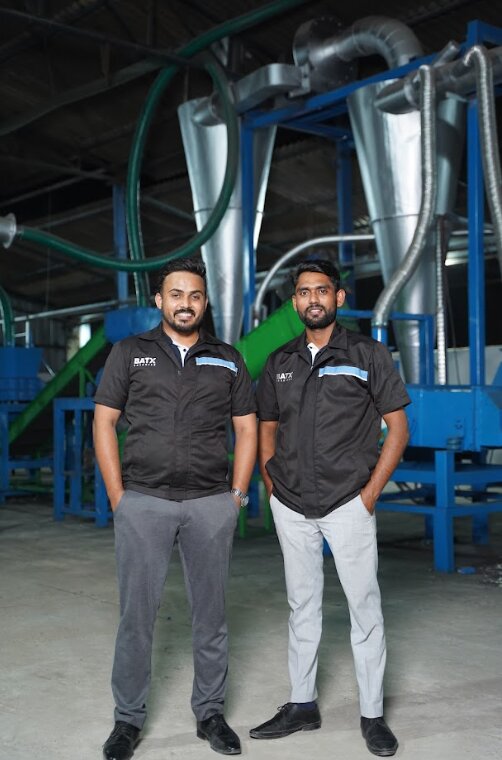
After school, Vikrant and Utkarsh had been very clear about studying what it takes to run an organization earlier than beginning one. They labored for a bit of over one 12 months in several corporations with Vikrant engaged in R&D work whereas Utkarsh handled the administration aspect of issues.
Amid the pandemic in July 2020, they received again collectively and established BatX Energies, which is as we speak a serious Lithium-ion battery recycling startup which produces battery-grade supplies.
One in all their core targets is to create a home round provide chain of supplies like lithium, nickel and cobalt, amongst others, and reduce the requirement for mining them. The corporate extracts uncommon earth metals, reminiscent of lithium, cobalt, nickel and manganese from used Li-ion cells, that are then purchased by quite a lot of industries — together with EVs, prescribed drugs, electroplating and fertiliser. But when these used cells have some cost left, they repurpose them into batteries for off-grid photo voltaic EV chargers, inverters, or different purposes.
The startup has developed an modern process for recycling varied batteries, using specialised strategies and superior hydrometallurgical processes. As a serious provider of sustainable battery options in India, they’ve even secured a patent for his or her Zero Waste-Zero Emission Know-how and efficiently recycled about 220 million batteries thus far.
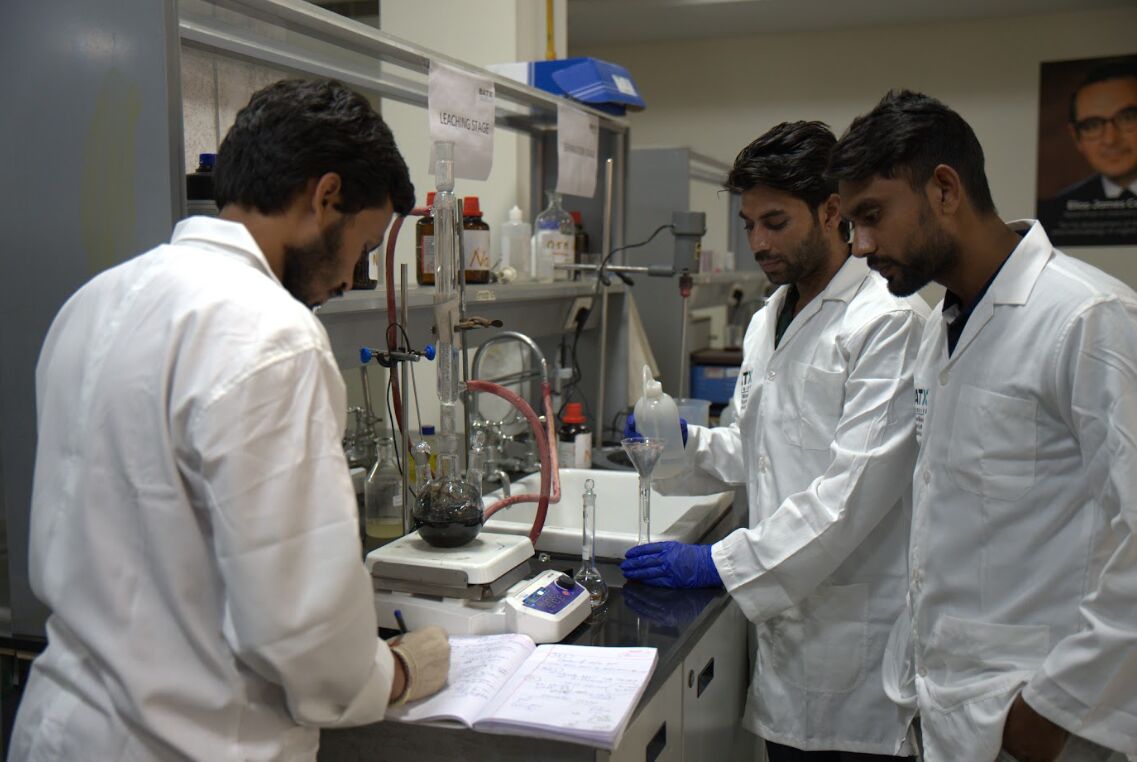
The best way to recycle and repurpose used Li-ion batteries?
The method begins with sourcing used Li-ion batteries from formal entities like EV producers and ventures engaged in constructing stationary purposes like telecom towers the place these batteries are deployed, energy electronics, and different digital gadgets like laptops, cellphones, and so on. Additionally they supply these batteries from the casual sector as effectively.
“As we speak, about 80% of the sourcing of battery cells comes from the unorganised sector as a result of a majority of them are extracted from cellphones and laptops. Nonetheless, our market analysis means that the organised sector will quickly overtake the unorganised sector relating to sourcing these used batteries. Not like laptop computer or cellphone batteries, EV batteries can’t be left within the unorganised sector. They don’t have the capability or functionality to deal with them. One tonne of Li-ion battery waste is equal to 1 e-bus battery; 3 EV automotive batteries; 29 three-wheeler batteries; 40 two-wheeler batteries; or 22,000 cell phone batteries,” explains Vikrant.
“As soon as sourced, you must organise protected transportation of those previous Li-ion batteries. We pay shut consideration to the packaging of the battery pack, discharging the battery on the assortment level, guaranteeing no wiring is saved open or uncovered and all of the charging and discharging slots are well-capped. Now we have made positive to comply with these fundamental security measures,” claims Utkarsh.
Though the startup is predicated out of Gurugram, Haryana, its most important recycling facility lies in Sikandrabad close to Bulandshahr, Uttar Pradesh. There are two issues that occur right here.
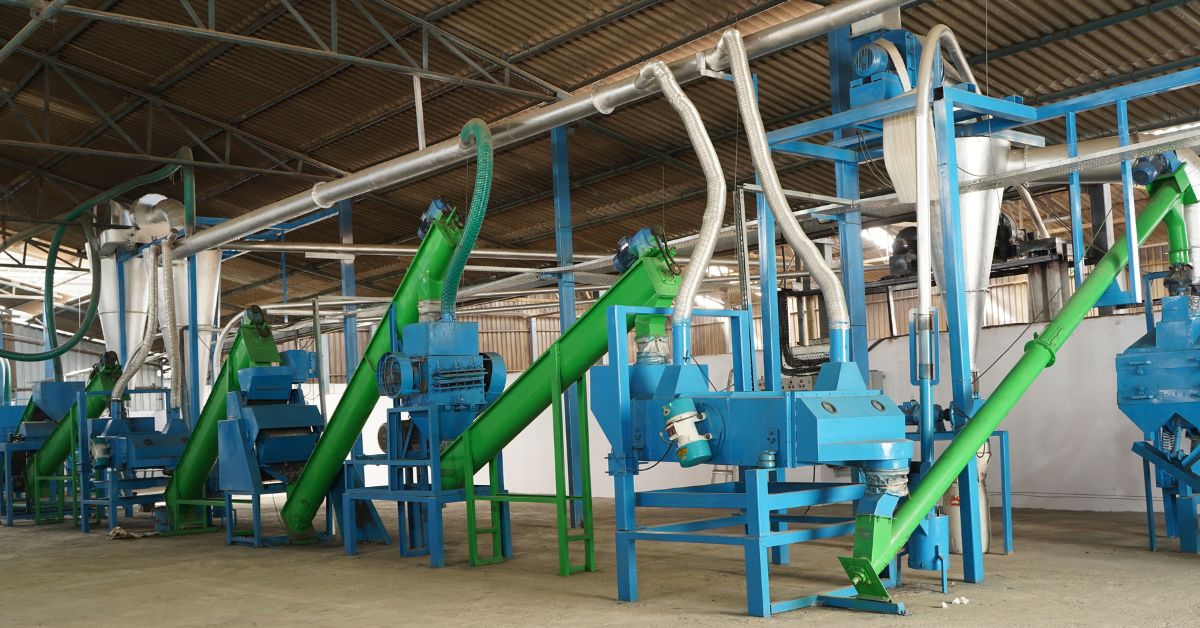
As soon as these used batteries attain the BatX facility, they may break them down into totally different modules and cells, run them by way of a sequence of assessments, and conduct an evaluation of the cell efficiency. If a few of these cells nonetheless have some cost left and might carry out for one more life in a distinct utility, the BatX crew repurposes them for second-life purposes.
“For instance, you’ve got a cell, which could be reused for a torch or in a small digital gadget. If it’s a four-wheeler battery, we will reuse its cells in an power storage utility. We intently gauge how a lot cost stays on this battery. Utilizing our IoT gadgets, we must be very positive when the battery is coming to the top of its second life. It’s a vital a part of the method. If there’s a malfunction, we restore it. As soon as these cells have been exhausted, nevertheless, we take them for recycling. If these cells can’t be reused as per our first evaluation, we take them immediately for recycling. That’s the way you create a round financial system,” he provides.
From second-life EV batteries, for instance, BatX Energies has constructed 100% off-grid photo voltaic EV chargers for EV OEMs like MG Motor. They’ve even developed residence inverters using second-life EV batteries on the identical price as a lead-acid inverter, which is hazardous.
“Now we have developed a small unit which may run for 5 years. We’re going to deploy these inverters quickly in rural Rajasthan and Madhya Pradesh. As soon as these second-life batteries come to the top of their lives, we are going to take them again and recycle them,” notes Utkarsh.
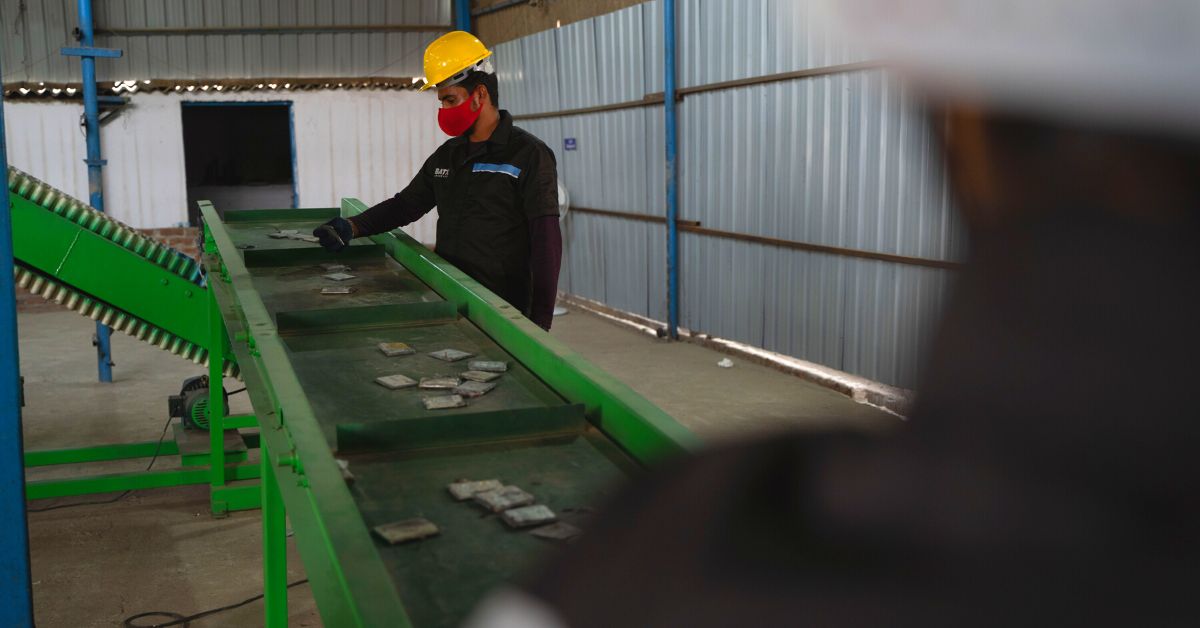
As soon as the batteries are deemed not match for second-life purposes, they’re dismantled, discharged, and crushed into powder at their facility in Sikandrabad, Uttar Pradesh. They name this crushed powder ‘black mass’, which is then transported to their most important chemical recycling facility, and right here, they extract supplies like lithium, cobalt, nickel, and so on.
“From the black mass, all battery grade materials together with graphite is eliminated, after which impurities like aluminium, copper and cake. After this, we extract lithium, nickel and cobalt. As soon as we extract these supplies, we promote them to materials refiners who use them to make new Li-ion cells. However supplies like lithium are additionally used within the pharmaceutical business to make anti-depression treatment, and so on. Cobalt, in the meantime, is used within the ceramic and ache business whereas Nickel is employed in electroplating and the fertiliser business as effectively. We solely produce high-grade materials (99.6% purity),” claims Utkarsh.
Vikrant goes on to say that the method they’ve developed to repurpose or recycle these previous batteries is chemistry-agnostic — whether or not they’re lithium iron phosphate (LFP) batteries, lithium nickel manganese cobalt (NMC) batteries, Li-ion batteries, or lead acid batteries.
“It took us 5 years to design and develop this course of we’ve established. We presently have a patent on our ‘Waste to Zero Emission Know-how’. The patent is on their equipment, strategies and course of. Since we initially didn’t have sufficient funds, we developed the recycling plant ourselves. Now we have not imported any of the equipment in our manufacturing plant,” claims Vikrant.
Within the close to future, nevertheless, BatX will look to change their operations primarily based on a hub and spoke mannequin. Though their most important centre of operations lies in Sikandrabad, UP (Hub), they’re planning to arrange totally different services (spokes) in locations like Hosur in Karnataka, Siliguri in West Bengal, and Gujarat. Why are they adopting this new working mannequin?
“Let’s say, we acquire previous Li-ion batteries from Maharashtra however need to transport them to our hub in UP. Regardless of all the security measures we take, there may be some danger concerned in transporting them. That’s why we’re planning to create services (spokes) in states like Gujarat (and West Bengal, Karnataka) in order that we will transport our previous batteries from Maharashtra there,” he says.
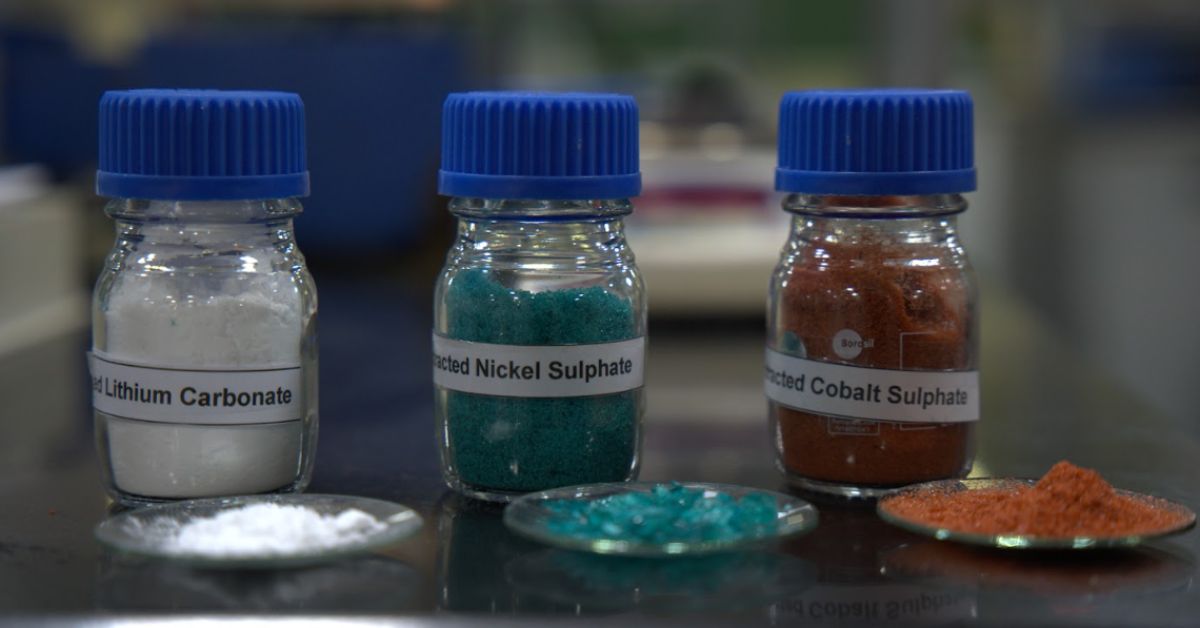
Funding and looking out forward
In late December 2023, BatX Energies raised USD 5 million in pre-Sequence A funding. The spherical was led by traders, reminiscent of Zephyr Peacock, but additionally noticed participation from funding platforms like Lets Enterprise and present traders like JITO Angel Community, and household places of work of Mankind Pharma, Excel Industries, and BluSmart, amongst others.
Within the press launch they issued, Pankaj Raina, managing director of Zephyr Peacock mentioned, “The corporate is poised to change into an important stakeholder within the battery provide chain in India, as recyclers will likely be a big supply of crucial supplies for Li-ion battery manufacturing. We’re excited to accomplice with them on this journey.”
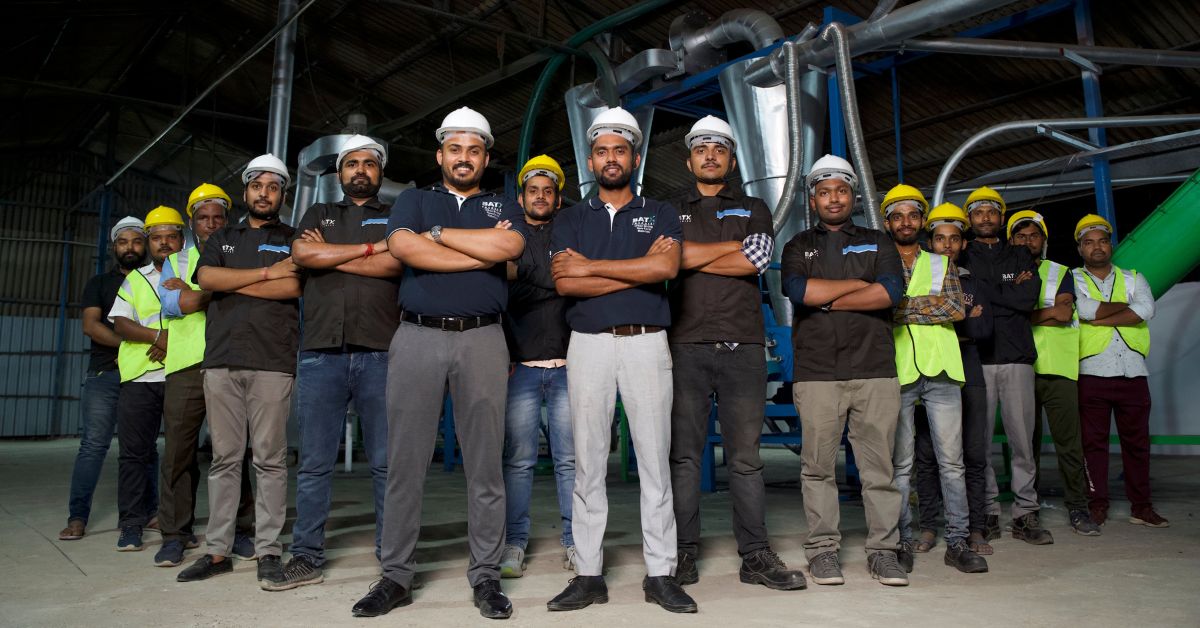
Chatting with The Higher India, nevertheless, Utkarsh says, “In 5 years, we’re going to recycle roughly 25% to 30% of deployed Li-ion batteries in India. We are going to provide the fabric again to business gamers who can produce 95% of the battery financial institution again from recycled supplies.”
(Edited by Pranita Bhat; Pictures courtesy BatX Energies)
[ad_2]